DTK Corporation’s Clean Egg Factory in the northern province of Thu Tho is the largest project in high-tech clean egg production in Vietnam.
The project, which has a total investment of 800 billion dong (35 million US dollars) in Tam Nong district, has two phases. It expects to produce 175 million eggs annually, equaling nearly 500,000 eggs per day, once it is fully operational in 2018. This April, the factory produced its first batches of clean eggs of the Hy-line breed from the US.
The factory applies advanced technologies to raising egg-laying chickens, including the production technology from ISE Foods - the largest egg production group in Japan, the production line from Chubu Ecotec (Japan) and the system of facilities from Agrotop (Israel).
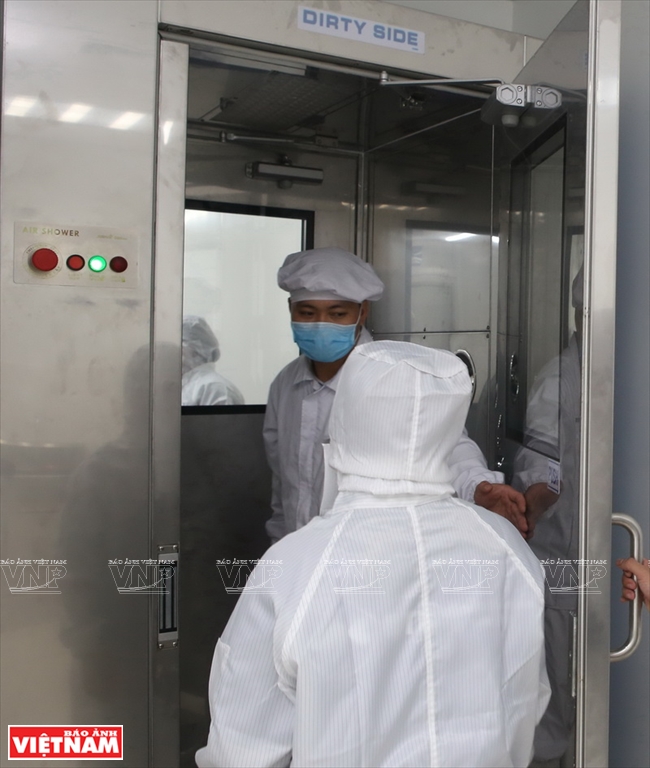
A modern system is used in the factory to make the employees' uniform clean.
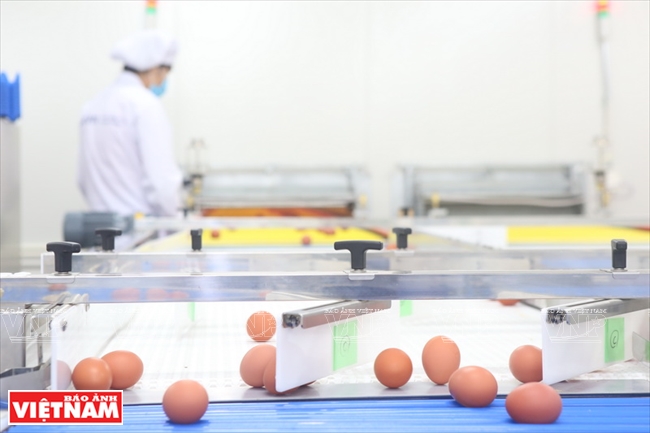
Using an automatic system to collect eggs.
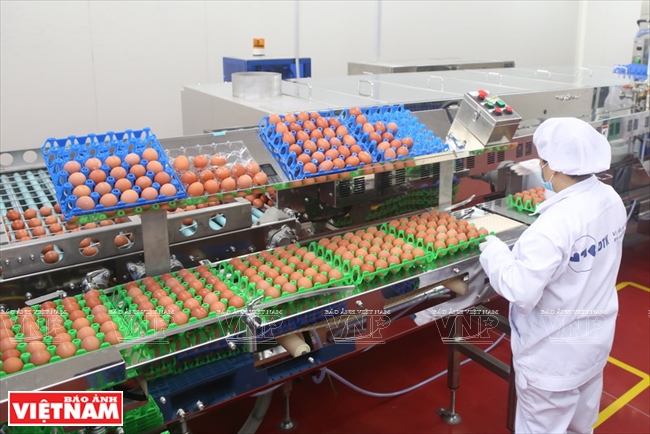
A modern system to transport eggs.
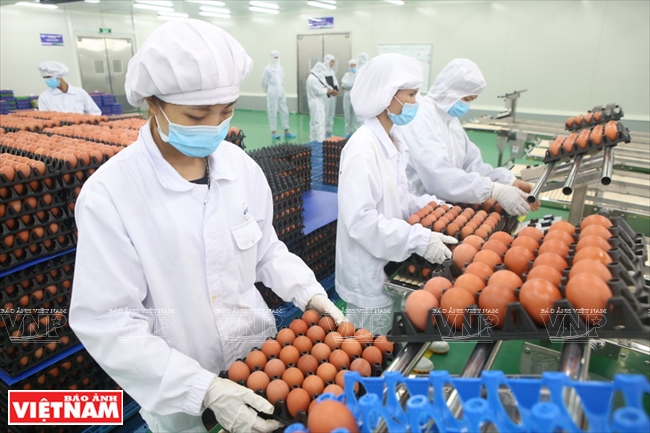
Take trays of eggs out of the automatic transporting system.
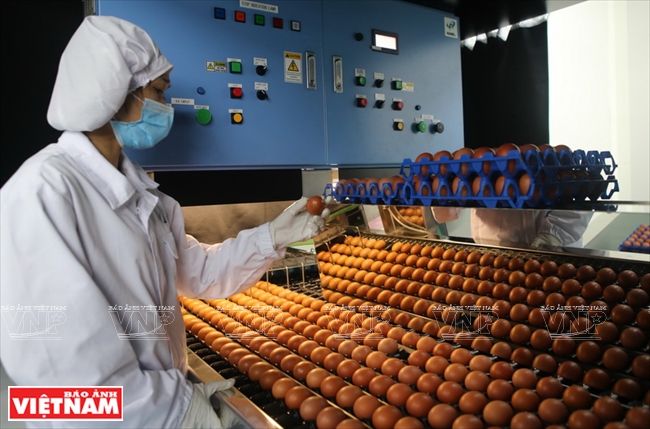
Using a modern machine to check eggs.
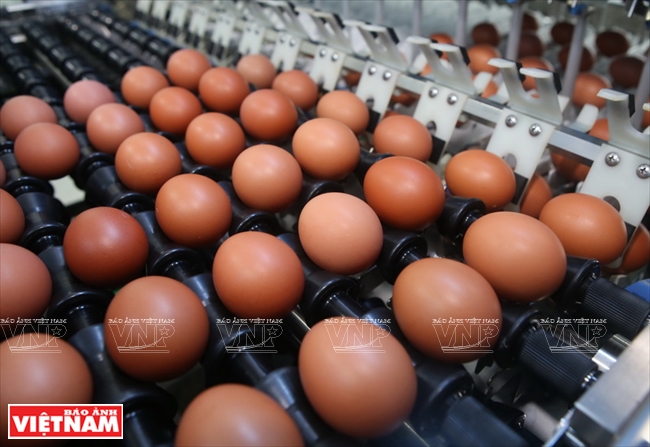
A classification machine to ensure the uniform shape of the eggs. Photo: Thanh Giang/VNP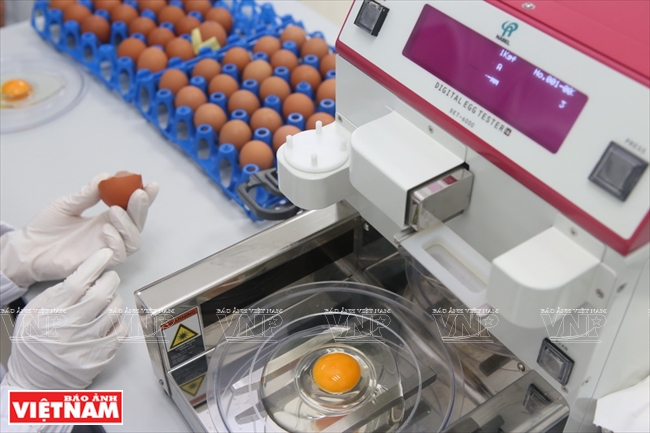
Checking the colour of a yolk. Photo: Thanh Giang/VNP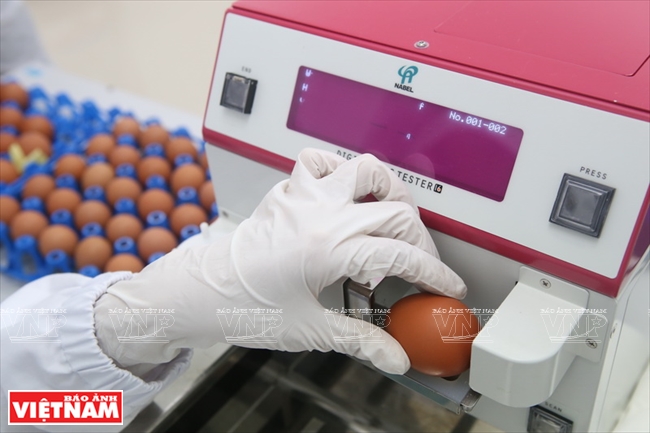
Checking the quality of eggs.
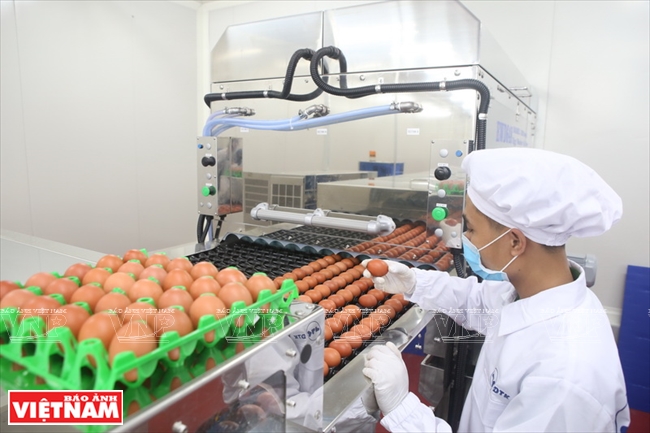
Checking the colour and size of every eggs.
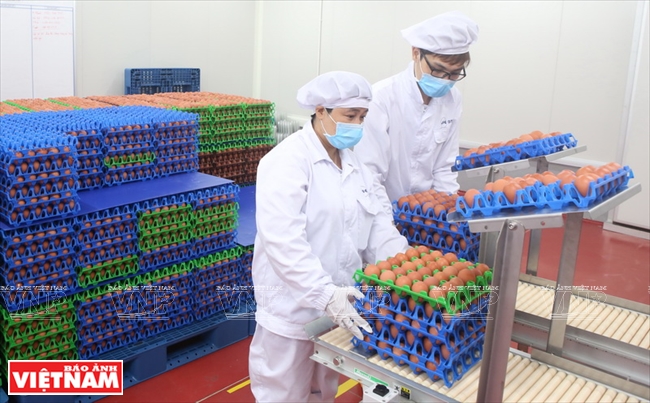
Clean eggs are ready for sale.
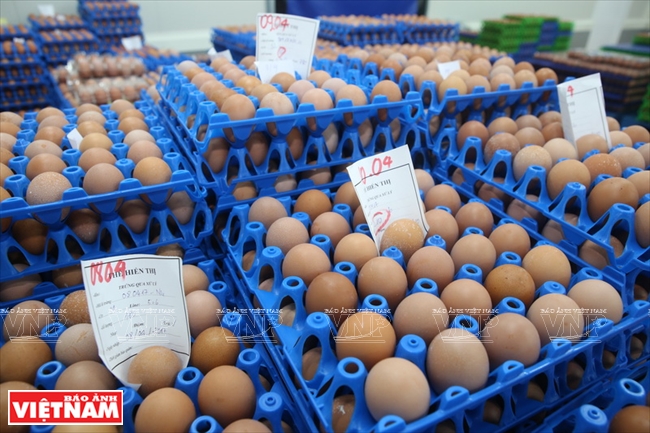
The first patch of eggs produced in April 2017. Photo: Thanh Giang/VNP
|
To ensure an ideal environment for chickens to produce the highest quality eggs, the factory was built on a high hill which is separated by a lake and fields of tea. In the factory, all stages are strictly controlled and all employees and cadres must follow strict regulations on industrial hygiene management which helps prevent chickens from being infected.
Currently, the factory has 12 coops, each with a capacity of producing 40,000 eggs/day. To operate the production process, 110 employees, including 46 engineers who are responsible for taking care of egg-lying hens, are divided into groups.
The factory set up a production line with a farm in Dien Ban district in Quang Nam province where Hi-line breeding chicken are raised. Chicks are then transported from the farm to the plant to be cared for until they begin laying eggs. After 85 weeks of laying eggs, chickens are then sold for meat.
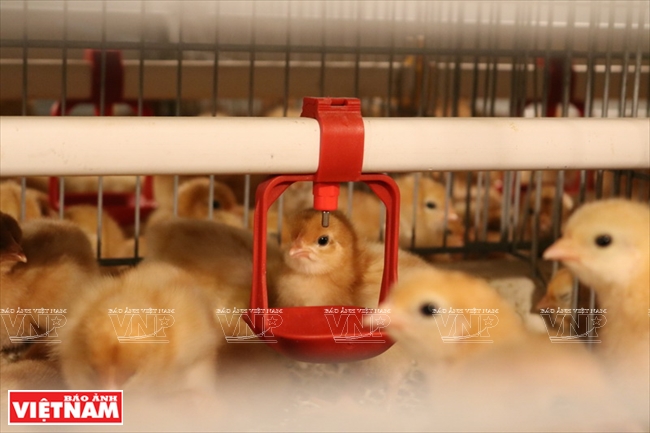
Chicks from a farm in Quang Nam are transported to the factory in Phu Tho.
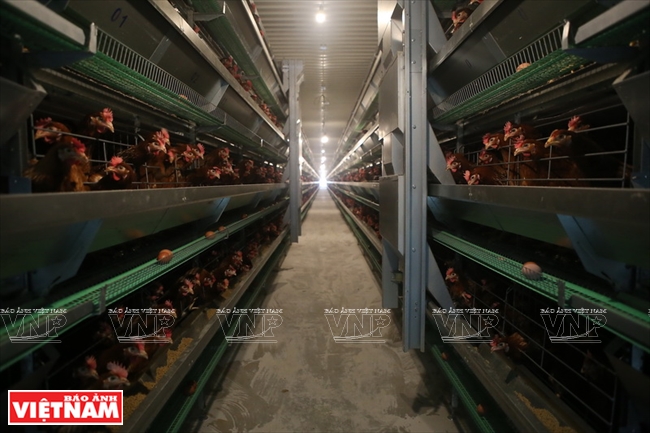
Panoramic view of the area for raising egg-laying chickens.
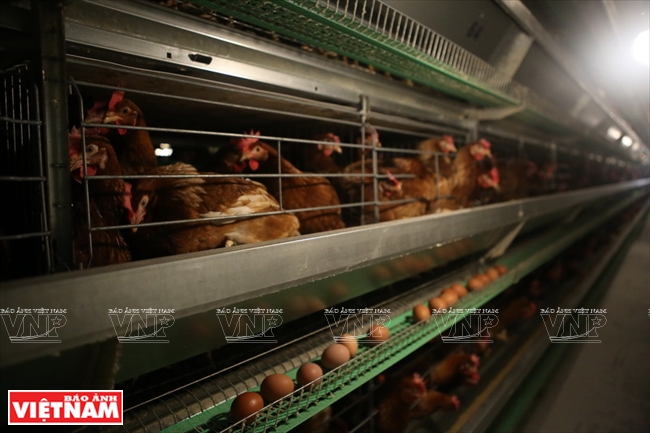
The total output of the factory is 40,000 eggs per day. Photo: Thanh Giang/VNP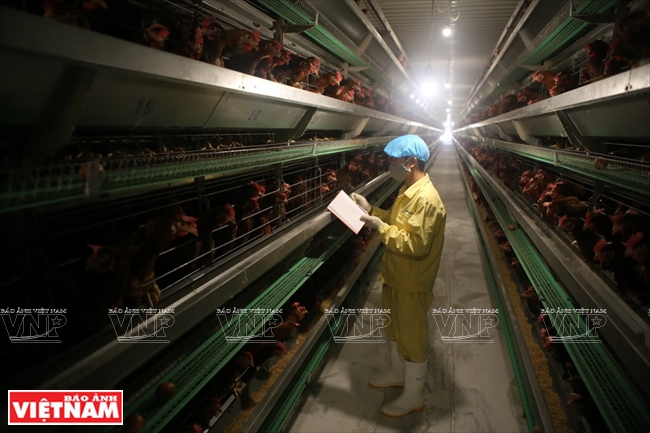
Checking egg-laying chickesns. |
Khuong Ngoc Khai, director of the factory, said: “In Vietnam, egg-laying hens are now mainly raised in a natural environment or on industrial farms with the coordination between farmers and businesses. DTK has found a new direction for raising egg-laying hens with a chain of production and distribution so it is capable of controlling all stages of production.
Khai added that the plant will have the pay-back period in 10 years and make a profit after the next two years. Currently, eggs from the first batches have been sold in some supermarkets in Hanoi such as Unimart and Aeon Mall Long Bien. The plant has sets a target of exporting eggs to selective markets like Japan and South Korea.
Having engaged in animal husbandry for 30 years, DTK Group has eight affiliates which specialise in feed production, breeding farms, import-export and distribution. DTK ranks 200th in the Top 500 largest private enterprises in Vietnam and won the Golden Rice Award and the Farmer’s Businesses and the Golden award by the Vietnam Poultry Association.và Doanh nghiệp vì nhà nông, Bảng vàng lưu danh do Hiệp Hội chăn nuôi gia cầm Việt Nam trao tặng.
|
Story: Bich Van - Photos: Thanh Giang